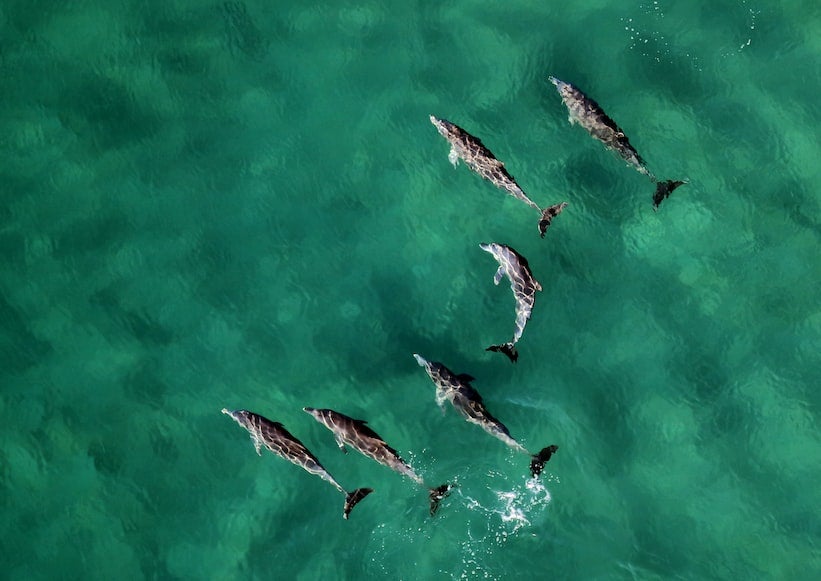Wildlife crime generates over $20 billion annually says Mozambique’s national wildlife authority
Criminal syndicates recruit gangs on the ground, supplying weapons and finances in return for wildlife products

Your support helps us to tell the story
From reproductive rights to climate change to Big Tech, The Independent is on the ground when the story is developing. Whether it's investigating the financials of Elon Musk's pro-Trump PAC or producing our latest documentary, 'The A Word', which shines a light on the American women fighting for reproductive rights, we know how important it is to parse out the facts from the messaging.
At such a critical moment in US history, we need reporters on the ground. Your donation allows us to keep sending journalists to speak to both sides of the story.
The Independent is trusted by Americans across the entire political spectrum. And unlike many other quality news outlets, we choose not to lock Americans out of our reporting and analysis with paywalls. We believe quality journalism should be available to everyone, paid for by those who can afford it.
Your support makes all the difference.By Benjamim Wilson for Domingo
The crimes committed against wildlife species across the world generate about $23 billion (£19 billion) each year, according to data provided by Mozambique’s National Administration of Conservation Areas (ANAC) during a workshop for journalists in Maputo last year.
The conservation authority expressed concern about wildlife crime, and called on the media to contribute to raising the conscience of society regarding the preservation of nature.
Carlos Lopes Pereira, an inspector at ANAC, explained that the products extracted from wild animals are mostly destined for Asian countries, adding that illegal trade begins on the African continent.
Pereira said that poachers establish gangs that work for kingpins who, in turn, finance them with equipment and high precision weaponry.
He added that the poachers have been using sophisticated methods of action during raids in conservation areas.
Celmira da Silva, ANAC director general, said that organised crime networks are disrupting conservation efforts, having developed an integrated approach in relation to crime involving flora and fauna.
However, he highlighted, Mozambique has been increasing its efforts to patrol and protect its state conservation areas, which represent 25 per cent of the nation’s territory, and it has been in these places where it has had most success against poaching.
Da Silva also mentioned that joint operations involving different sectors of the State, including the judiciary and other countries in the region, start to consolidate in close combat with crimes against wildlife assets.
He acknowledged that it is up to everyone to pay attention to conservation and see it as a philosophy of life, especially in the context of worrying about climate change at the global level.
However, the previous Minister of Tourism, Fernando Sumbana, described the historical path of the efforts for conservation and argued that Mozambique must have a national agenda on the preservation of biodiversity and environmental crimes.
According to Sumba, Gorongosa National Park is an example of the restoration of national parks and the ecosystem in the conservation framework, and similar programs were developed in other national parks, highlighting the cross-border institutional management of Greater Limpopo.
For Afonso Madope, director of Wildlife Conservation Society,, the world of conservation has specificities and complexities. Indeed, he highlighted the need to create synergies in the communication sector, arguing that social communication plays an important role in changing people’s behaviour, especially in relation to conservation needs.
However, for Baldeu Chande, former administrator of the Niassa Special Reserve, social communication must adopt a proper language to transmit conservation practices, such as the importance of conservation areas that make a lot of money based on tourism. According to what was widely mentioned at the workshop, there is a need to combine socio-economic development and respecting the conservation and sustainable use of natural resources.
This article is reproduced here as part of the African Conservation Journalism Programme, funded in Angola, Botswana, Mozambique, and Zimbabwe by USAID’s VukaNow: Activity. Implemented by the international conservation organization Space for Giants, it aims to expand the reach of conservation and environmental journalism in Africa, and bring more African voices into the international conservation debate. Written articles from the Mozambican and Angolan cohorts are translated from Portuguese. Broadcast stories remain in the original language.
Read the original story here:
Join our commenting forum
Join thought-provoking conversations, follow other Independent readers and see their replies
Comments